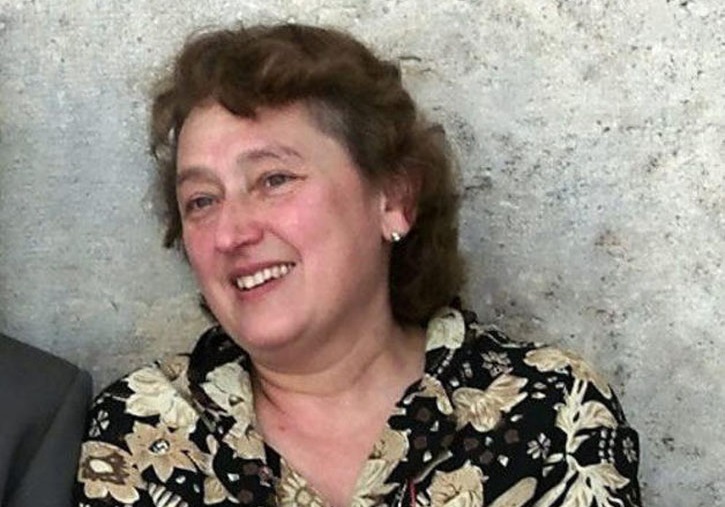
This Friday, November 22, marks the eighth anniversary of the death of Lynn Margulis, the scientist who revolutionised everything that was known about cell biology in the 1960s and since 1985 had a close relationship with the University of Valencia. She received from it an honoris causa doctorate in 2001 and developed the theory of endosymbiosis, which questioned the application of Darwinian dogmas in microbiology. On December 11 and 12, the UV will hold a scientific conference in honour of the biologist, organised by the professor of Botany Eva Barreno. Registration is open at http://ir.uv.es/5uzGUKz.
“Life is a symbiotic and cooperative union that allows those who associate to succeed.” This statement by Lynn Margulis sums up very well her work, innovative and pioneering, in the field of evolutionary biology. Research that set her at odds with a big part of the scientific community of her time, but whose discoveries are essential to understand the evolution of cells and the unfolding of biodiversity.
And, given the preeminence of the visions that showed evolution as a competition in which only the species that best adapt survive, Margulis proposed a new paradigm that identified cooperation and association as a decisive factor in the evolution of organisms Although these approaches were not completely original, Margulis rescued them from forgotten authors, such as Russians Konstantín Merezhkovsky and Boris Kozo-Polyansky. The microbiologist was responsible for expanding and completing them, and her role was fundamental in its dissemination and subsequent widespread acceptance.
The theory of endosymbiosis describes the origin of complex cells of eukaryotes from symbiosis, that is, of the association relationships, between prokaryotic cells, that are much simpler. Margulis explained how larger prokaryotic cells, usually predatory bacteria, captured smaller ones with which they developed cooperative relationships that reported mutual benefits for both organisms. Without advocating an amendment to the totality or a radical break with the Darwinist postulates, this vision opened up new perspectives that are now fully incorporated into evolutionary explanations.
In 1967, Lynn Margulis presented, for the first time, this hypothesis in the article “On the origin of mitosing cells”, published in Journal of Theoretical Biology after having tried to disseminate it in fifteen other publications. It was this same magazine that, fifty years later, in 2017, examined the importance of this article by Lynn Margulis in a text written by Juli Peretó, full professor of Biochemistry and Molecular Biology and Antonio Lazcano, the latter professor of the National Autonomous University of Mexico (UNAM). Among others, Margulis contribution was essential to popularise a division of living beings in five kingdoms: vegetable, animal, fungi, protists and moneres.
Lynn Margulis collaboration with the University of Valencia also paid off in the form of publications, such as the essay Una revolución en la evolución (‘A Revolution in Evolution’), published by the UV. It was not the only Spanish university with whom the scientist worked. Margulis also participated in projects in Catalonia, such as in the study of microbial tapestries present in the Ebro Delta, where she and her team managed to identify two new species of spirochetes.
The microbiologist also made great contributions to the Gaia theory of James Lovelock, who argues that the presence of life on the planet has contributed to inducing the maintenance of conditions suitable for the biosphere. During her life, Margulis accumulated a number of positions that endorsed her career, from being a member of the National Academy of Sciences of the United States, and of the homologous institution in Russia, to which, perhaps, the one that was her most important responsibility, that of co-director of the Department of Planetary Biology at NASA.
Scientific conferences
The University of Valencia organises a scientific conference in honour of biologist Lynn Margulis. Under the title “La tierra simbiótica: cómo Lynn Margulis inició una revolución científica” (‘The symbiotic land: how Lynn Margulis initiated a scientific revolution’), will take place on December 11 and 12, and there will be screening of films, conferences and a round table. The SYMBIOTIC EARTH: How Lynn Margulis rocked the boat and started a scientific revolution film deals with the life and career of the microbiologist, and analyses her contribution to the development of the symbiosis theory.
More information conferences: http://ir.uv.es/0zkujbF
Registration conferences on Lynn Margulis: http://ir.uv.es/5uzGUKz












